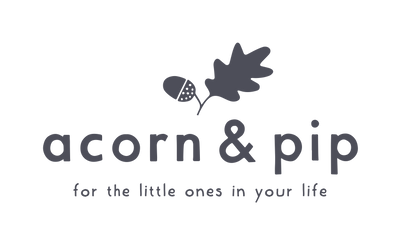Should New Parents Be Educated on Their Child’s Foot Health, Alongside Weaning and Other Topics Currently Covered?
Should New Parents Be Educated on Their Child’s Foot Health, Alongside Weaning and Other Topics Currently Covered?
Becoming a new parent is a journey filled with joy, excitement, and a lot of learning. From understanding the basics of feeding and sleep schedules to navigating the milestones of weaning, there’s no shortage of information to absorb. But one crucial aspect of a child’s development that often doesn’t get the attention it deserves is children’s foot health. At Acorn & Pip, we believe that foot health should be a fundamental part of parental education, right alongside weaning, sleep training, and other essential topics. Here’s why every new parent should be educated about their child’s foot health from the very beginning.
The Importance of Early Foot Health
Children’s feet grow and develop rapidly, especially in the first few years of life. During this critical time, the bones in a child’s feet are still forming and are particularly soft and malleable. This makes them highly susceptible to damage if they’re not properly cared for. Understanding the basics of foot health from the start can help parents make informed decisions that support healthy foot development and prevent potential problems later on.
Why Foot Health Should Be Part of Parental Education
- Foundation for Overall Health: Just as proper nutrition during weaning lays the foundation for a healthy body, early foot health lays the groundwork for a lifetime of mobility and well-being. Healthy feet are essential for a child’s balance, coordination, and posture, all of which contribute to their overall physical development. Educating parents on the importance of foot health ensures they can take the necessary steps to protect and nurture their child’s feet from day one.
- Prevention of Common Foot Problems: Many common foot problems in children, such as flat feet, ingrown toenails, and foot pain, can be prevented or mitigated with early intervention. However, parents need to be aware of these potential issues and know how to spot early signs. By incorporating foot health into the broader scope of parental education, we empower parents to take proactive measures, such as choosing the right shoes and encouraging barefoot play when appropriate.
- Correct Footwear Choices: One of the most important decisions a parent can make for their child’s foot health is choosing the right footwear. Poorly fitting shoes can lead to a host of problems, from blisters and bunions to more serious conditions like toe deformities. Parents who are educated about foot health will understand the importance of selecting shoes that offer proper support, have a wide toe box, and are made from breathable materials. Brands like Froddo, known for their commitment to children’s foot health, offer excellent options that parents should be aware of when shopping for their child’s first shoes.
- Support for Healthy Foot Development: Just as weaning is a gradual process that supports a child’s nutritional needs, foot development requires ongoing attention and care. Parents should be educated on the benefits of regular foot measurements, the importance of allowing feet to move and grow naturally, and the role of appropriate footwear in supporting healthy foot development. This knowledge helps parents to create a healthy environment for their child’s feet as they grow and develop.
- Long-Term Impact: The habits and choices made during the early years of a child’s life have long-term implications for their health. Educating parents about foot health ensures that they are aware of the potential long-term effects of neglecting their child’s feet. This can include everything from chronic foot pain to issues with posture and gait that could affect their child’s quality of life as they grow older.
Integrating Foot Health into Existing Parental Education
So, how can we integrate foot health education into the topics already covered with new parents? Here are a few ideas:
- Antenatal Classes: These classes could include a session on children’s foot health, covering basics like the importance of barefoot play, how to choose the right footwear, and how to monitor foot development.
- Healthcare Visits: During routine check-ups with healthcare providers, there should be discussions about foot health, including advice on when and how to measure a child’s feet and what to look for in a healthy shoe.
- Parenting Resources: Books, websites, and other resources that new parents turn to for advice should include sections on foot health, offering practical tips and guidelines.
- Workshops and Seminars: Just as there are workshops on weaning, sleep training, and other parenting topics, foot health workshops could provide parents with hands-on guidance on how to care for their child’s feet.
Conclusion: A Step Towards Healthier Feet
At Acorn & Pip, we believe that every parent should be equipped with the knowledge to support their child’s foot health, just as they are with weaning and other critical aspects of early development. By making foot health a standard part of parental education, we can help ensure that children grow up with strong, healthy feet that support their overall well-being. After all, healthy feet are the foundation for a healthy life, and it’s never too early to start taking care of them.
We are the kids’ shoe experts! We opened our shoe shop, Slaithwaite in 2021 and proudly stock StartRite, Bobux, Camper, Ricosta, Froddo, Igor and more! From pre-walkers to school shoes, explore the full online collections starting with our new in collection here or maybe you fancy coming to see us in our retail space in Slaithwaite, find out more about our Shoe shop here.





